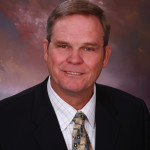Col. (Ret.) Ted Spain, weighs in with words on Military Success Network’s prime topic: resilient and successful transition.
On this site, we view transition as opportunity for mindset shifts, application of skills and re-purposing of the qualities that military personnel come out of service with into civilian society. Posts here support the transition process with resources such as the people, information and programs that facilitate resilience at each of the various stages and in life’s different ‘departments,’ positively.
Now, Colonel Ted Spain’s comments on one aspect of his personal process of transition from military life to civilian roles in an exclusive interview with Military Success Network …...In his own words….
Can you share with MilSuccessNet readers, aspects of your own transition experience and current corporate life?
I transitioned directly from the military into the corporate world, and it was quite different.
Four major issues come to mind: the financial bottom line; litigation; labor unions; customer satisfaction.
I pick these four because they can determine success or failure in the corporate world, but are largely irrelevant in the military.
My focus in the military was mission accomplishment and taking care of the soldiers. The soldiers were my “customers”. I owed it to them to ensure they were properly trained, equipped, led, disciplined, etc.
I managed a budget, but did not have a financial bottom line. In the military as long as I always did what was right, and treated people the way I wanted to be treated, I didn’t have to deal with litigation, IG/EO complaints, etc. Of course soldiers are not unionized, so I never worked with a collective bargaining agreement, which is essentially a contract with the work force.
How might your military knowledge and experience have helped you through the phases of transition – post Army life, post Military Police experience?
The military helped prepare me for the corporate world in many respects. First and foremost is leadership. Good leadership is important in any organization.
The military also honed my decision making skills, an attribute I’ve noticed lacking in the corporate world.
Some of the people I’ve dealt with in the corporate world have progressed without the requisite leadership experience or leadership training.
With rare exceptions, the military was good at promoting people that not only have performed well, but have great potential for increased responsibility. That has not always been my experience in the corporate world.
What words might you have for other military men and women in the process of transition?
They need to decide what is most important to them, salary, or location. It is a rare to get a high salary at the exact location where service members departing the military want to live.
I was lucky to get a great paying job in the region of the US where I wanted to live. When that first contract was up, I was also lucky to be transferred to another location, but in the same region. Most of my military friends have had to choose between the two.
I would also advise departing service members to manage their expectations. They shouldn’t expect to pick up right where they left off in the military.
A person with the attributes I described earlier is valuable in the civilian sector and has the potential to advance quickly, but many times must be willing to relocate.
Great prior planning and patience is important during the transition period.
Military Success Network will carry more sage suggestions in future about transition. COMMENTS and questions are welcome in the box directly below this post.
Stay tuned for an exclusive post by Ted Spain on how he came to write his book, on MilSuccessNet’s WoW feature: Words on Wednesdays. Also a post on March 19, on the launch of his book, Breaking Iraq-The Ten Mistakes That Broke Iraq, co-written with Terry D. Turchie.
Colonel (Retired) Ted Spain is a native of Wendell, North Carolina and entered the Army as a Private First Class. He is an inductee into both the US Army Officer Candidate School Hall of Fame and the US Army Military Police Regimental Hall of Fame. Before joining the Army he was a police officer in Greenville, North Carolina.
In the Army he served in key leadership positions, culminating as Commander of the 18th Military Police Brigade during the ground war and first year of Operation Iraqi Freedom. He is currently the Director of the Tactical Force Operations Division, at the Department of Energy and resides in Aiken,South Carolina.
Read another take on planned transition with Shaun Collins, and from Pam Collins’ perspective.
And in this post, a colonel goes to college.
Read about Valhalla and the work of Col.(Ret.) Gordon Cucullu for healing warriors.

You could not have picked a better person to speak about this topic. He has the experience and the ability to convey his perspectives to people of all walks of life. He is a leader who cares. Good job.
Thank you George Reed for visiting and for your comment.
There are so many stories and you are correct, perspectives must be conveyed, clearly and in an engaging way to ensure they are heard, understood and acknowledged.
Our site’s mission is to help… the H. U. and A process.
Helena
humbled by our guest contributors’ shared stories.
Good day! I simply wish to give an enormous thumbs up for the nice information you have
got here on this post. I shall be coming back to your weblog.